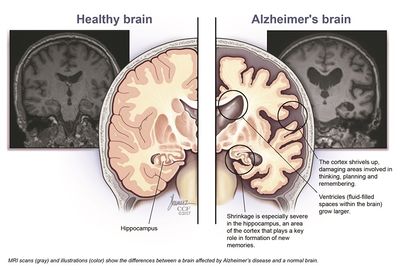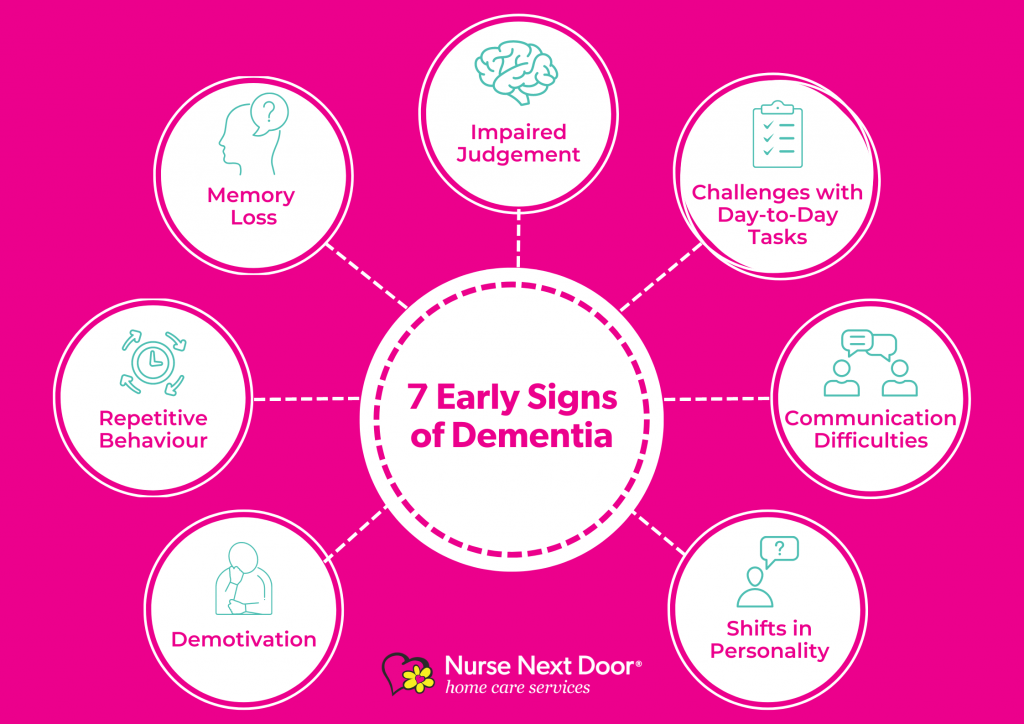Checklist: How to Safeguard Your Home Against Fall Risk for Seniors
Recognizing the Impact of Mental Deterioration on Daily Life and Caregiving
Dementia impacts everyday life in extensive ways, impacting not just those diagnosed however additionally their caregivers. As cognitive decline progresses, you might see adjustments in communication and routine that challenge both celebrations.
The Phases of Dementia and Their Effects on Day-to-day Live
As you browse the trip of mental deterioration, comprehending its phases can noticeably influence just how you manage every day life. Mental deterioration normally progresses through 3 primary stages: early, center, and late. In the beginning, you could notice periodic memory lapses or trouble discovering the ideal words. This can cause aggravation, yet recognizing these indicators early aids you adjust your regular and seek support.
During the middle stage, you'll experience more recognizable cognitive decline. Daily tasks might end up being difficult, and keeping your independence may call for adjustments. Using suggestions and streamlining your setting can aid.
In the late stage, people often require significant help with everyday tasks. Preparation for care ends up being essential, focusing on convenience and high quality of life. By comprehending these phases, you're better furnished to respond proactively, ensuring you or your enjoyed one can navigate the obstacles with self-respect and elegance.

Changes in Communication and Social Interaction
Exactly how do modifications in interaction impact your day-to-day communications as mental deterioration proceeds? As mental deterioration breakthroughs, you may see that easy discussions come to be tough. Words may escape you, or you might battle to locate the best phrases. This can bring about aggravation for both you and your enjoyed ones. Nonverbal cues, like motions or faces, become increasingly important.
You may find it less complicated to attach via these methods rather than relying only on spoken language. Listening abilities can additionally alter; you may discover it harder to follow conversations or keep in mind what was just stated (Vascular Dementia). This can lead to misconceptions or sensations of seclusion
Motivating persistence and developing a helpful atmosphere can assist. Involving in activities that foster link, like songs or art, can improve social interactions. Remember, preserving partnerships is still possible; it's nearly adjusting to new methods of interacting.
Effect On Daily Routines and Activities
While maneuvering day-to-day routines, you'll likely see that jobs you when completed effortlessly come to be extra challenging as dementia advances. Simple tasks like cooking, dressing, or also bathing may require more effort and time. You may locate yourself forgetting actions in acquainted regimens or battling to remember where you placed items. This can lead to frustration not simply for you, but additionally for those around you.
Planning your day can really feel frustrating, making it harder to stick to a routine. You might need reminders for visits or to take drugs. Adjusting your atmosphere can aid; as an example, labeling things or utilizing lists can streamline tasks. Participating in recurring, structured tasks can additionally offer convenience and a feeling of achievement. Bear in mind, it's all right to request help. Bordering yourself with supportive good friends or family can make managing these changes a little bit less complicated.
Emotional and Behavior Difficulties
Guiding via day-to-day routines can produce not just sensible difficulties, but likewise psychological and behavioral ones. You may see modifications in state of mind, such as raised anxiety or aggravation, which can come from confusion or trouble in completing jobs. As you navigate these moments, it is crucial to identify that your enjoyed one might express their feelings with habits like frustration or withdrawal.
These psychological actions can be unpredictable and may develop without caution, leaving you both sensation bewildered. You may discover that acquainted atmospheres or routines can assist lower stress and anxiety, however preserving perseverance becomes considerable. It is very important to confirm their sensations, also if you don't completely recognize them.
The Function of Caregivers in Supporting People With Dementia
As a caretaker, you play an essential role in providing emotional assistance for people with mental deterioration. Establishing day-to-day treatment routines can create a sense of security and comfort, helping to alleviate their anxiety. By recognizing their demands and using efficient techniques, you can significantly enhance their quality of life.
Psychological Assistance Methods
When caring for somebody with mental deterioration, recognizing the emotional landscape is essential for providing effective support. Simple gestures, like holding their hand or maintaining eye contact, can develop a feeling of safety. Ultimately, do not neglect to take treatment of your own psychological demands; looking for support for on your own can enhance your capacity to care for them.
Daily Care Routines
Establishing day-to-day treatment regimens is important for giving stability and comfort to people with mental deterioration, as these regimens can aid minimize confusion and stress and anxiety. You can start by detailing a consistent timetable for meals, tasks, and remainder. This predictability aids your enjoyed one feel more safe and involved.
Integrate acquainted tasks, like folding washing or watering plants, which can stimulate favorable memories and promote a feeling of success. Usage visual signs, such as checklists or calendars, to assist them with the day.
Be adaptable, though; adjust routines as needed based upon their mood pop over to this web-site or power degrees. Frontotemporal Dementia. Keep in mind, your patience and understanding are crucial in maneuvering their transforming needs, ensuring they really feel supported and valued throughout their day-to-day life
Producing a Safe and Comfy Living Setting
Developing a safe and comfy living environment is essential for people with mental deterioration. You'll wish to make home safety adjustments that lower dangers and assure familiarity to supply a feeling of comfort. By concentrating on these aspects, you can assist create a room that sustains both safety and wellness.
Home Safety Adjustments
As you navigate the obstacles of dementia, making home safety and security adjustments can substantially improve convenience and safety. Begin by removing tripping threats like rugs and mess, ensuring walkways are clear. Mount grab bars in washrooms and non-slip floor coverings in the shower to protect against drops. Consider using brighter illumination and night lights to enhance presence, particularly throughout nighttime. Tag vital areas, such as the bathroom and cooking area, with clear indications to assist with orientation. Safeguard any sharp objects or hazardous compounds unreachable. Additionally, assess your home's alarms and locks to confirm they're easy to use and supply comfort. These adjustments not just promote safety yet also urge self-reliance, allowing your enjoyed one to really feel even more secure in their atmosphere.
Comfort and Knowledge
After making sure a secure setting with required adjustments, fostering comfort and experience is essential for people with mental deterioration. Maintain a regular regular to assist them feel grounded and minimize anxiety. Engaging in acquainted tasks, such as paying attention to music or horticulture, can boost their feeling of belonging, making their living atmosphere a real haven.
Strategies for Effective Caregiving and Support
While navigating the difficulties of dementia care can feel overwhelming, applying efficient strategies can considerably enhance both the caretaker's and the client's day-to-day experience. Beginning by developing a routine; predictability assists minimize anxiousness for both you and your liked one. Usage clear, easy communication-- straight inquiries and short sentences can prevent confusion.
Don't neglect to take care of on your own; routine breaks and get in touch with support system. Sharing experiences with others in comparable situations can provide valuable insights and emotional alleviation.
Lastly, stay person and versatile. Mental deterioration can bring uncertain changes, so adjusting your approach is crucial. By employing these strategies, you can foster an extra favorable environment that benefits both you and your loved one.
Regularly Asked Inquiries

What Are the Various Kinds Of Dementia?
You'll find several kinds of mental deterioration, consisting of Alzheimer's, vascular dementia, Lewy body dementia, and frontotemporal dementia. Each type impacts memory and cognitive function in a different way, so recognizing the distinctions is necessary for correct medical diagnosis and care.
How Can I Aid Someone With Early-Stage Dementia?
You can aid someone with early-stage dementia by being person, offering assistance, and urging them to engage in tasks they appreciate. Keeping routines consistent and preserving open interaction can also make a considerable distinction in their day-to-day live.
Exist Financial Resources Available for Dementia Treatment?
Yes, there are funds available for mental deterioration treatment. You can discover government support programs, not-for-profit organizations, and insurance policy alternatives. It's additionally wise to consult regional companies for details resources customized to your circumstance.
What Legal Considerations Should Caregivers Be Aware Of?
As a caretaker, you should take into consideration power of attorney, medical care proxies, and guardianship legislations. It's vital to understand the legal civil liberties and duties you hold, ensuring your enjoyed one obtains ideal care and defense.
How Can I Manage Caregiver Anxiety?
You can cope with caretaker tension by Full Report focusing on self-care, looking learn the facts here now for support from close friends or teams, setting reasonable expectations, taking breaks, and exercising leisure techniques. Bear in mind, your well-being matters equally as long as the person you're taking care of.
Comprehending the Impact of Dementia on Daily Life and Caregiving.
As you browse the trip of dementia, understanding its phases can significantly affect exactly how you handle day-to-day life.While steering day-to-day regimens, you'll likely discover that tasks you once finished effortlessly come to be a lot more tough as dementia progresses.Developing everyday treatment regimens is important for giving security and convenience to individuals with mental deterioration, as these regimens can aid decrease complication and anxiousness.While steering the obstacles of mental deterioration care can really feel overwhelming, implementing effective approaches can substantially enhance both the caretaker's and the person's day-to-day experience.